FSC Korean Regulatory Entity

In this article
Korean FSC Regulatory Entity (The Financial Services Commission -Korea) is a government-run organisation responsible for financial policy and regulatory supervision. The Securities and Future Commission (SFC) and subordinate bureaus carry the FSC’s respective roles.
FSC History
Following the Asian financial crisis in the year 1997, Korea’s financial supervision structure experienced significant adjustments. As a result, the Financial Supervisory Commission was established in April of 2008 as an integrated supervisory agency with financial supervision authority across all financial sectors to provide effective and efficient supervision of all financially related sectors.
On February 29, 2008, the Financial Supervisory Commission was reformed into the present-day Financial Services Commission (FSC), incorporating the previous Ministry of Finance and Economic’s Financial Policy Bureau.
FSC Role
The FSC has the statutory authority to establish and change financial laws and regulations. The FSC also has the role of awarding regulatory licences to financial firms. Furthermore, the FSC also monitors international issues such as finance firm foreign exchange transactions to maintain financial stability. After the reorganisation, the Korean government’s anti-money laundering and counter-terrorism financial efforts are led by the Korean Intelligence Unit (KoFIU), a part of FSC.
FSC Vision
FSC’s main aim is to support economic development and progress by promoting the financial industry, ensuring financial market stability, enforcing fair market practices and protecting their customers financially.
FSC Mission
FSC’s mission is to improve Korea’s financial industry, establish financial policies, safeguard its customers, and monitor the financial firms and markets.
Formulating
- FSC creates financial plans and policies that will improve the economy.
- FSC uses micro and macro policy tools that will ensure the stability of the financial market
- FSC will help in enhancing financial markets’ productivity and resilience.
Supervising
- The financial institutions should be supervised, and the financial market should be monitored by the FSC.
- FSC should provide licences to the financial service providers.
- FSC will investigate any illegal market behaviour.
Protection
- FSC will protect customers’ rights in any financial transaction.
- FSC will resolve and mediate customers’ issues.
- FSC will provide financial education for customers and investors.
Advancing
- FSC will improve its competitiveness within the financial industry.
- FSC will promote Korea as a worldwide financial centre
- FSC will help domestic financial firms in expanding their global business activity.
FSC Main Functions
FSC is divided into the following units with the specific tasks each.
Spokesperson Office
- The spokesperson will publicise FSC general policies to the general public and mass media.
- Supervise and establish communication tactics
- Planning announcement of FSA policies and media briefings.
Planning and Coordination Bureau
- Coordination and organising policies, agendas and work plans.
- Managing and implementing FSC’s financial budget.
- Supervising the regulatory improvements and measures.
Capital Market Investigation Units
- Preparing and arranging the investigation of illegal practices and frauds in financial markets.
- Analysing and organising the KRX’S Market Oversight Commission cases.
- Working with both domestic and international authorities to investigate illegal practices in the financial market.
Financial Consumer Bureau
- Supervising and planning to improve the consumer protection policy.
- Establishing and organising plans and policies at the microfinance level for financially weak groups.
- Managing the dispute resolution cases for financial customers.
- Improving the social economy by supervising the policies of financial support.
Financial Policy Bureau
- Initiatives in financial policy will be organised and supervised.
- Prepare financial market assessments as well as policy recommendations.
- Create a policy for small and medium-sized businesses (SMB) and corporate financing.
- Oversee the development and implementation of financial hub policies.
Financial Industry Bureau
- Develop policies for the banking and insurance sectors and mutual banks, specialised credit finance firms, and credit unions.
- Develop a strategy to boost Korea’s banking and insurance industries internationally.
- Responsible for overseeing the monitoring of foreign banks in Korea.
Capital Market Bureau
- Develop policies to enhance the financial sector.
- Monitor and control asset management firms.
- Develop necessary policies by analysing the securities and derivatives markets.
- Create a policy for external auditing and corporate accounting.
Financial and Corporate Restructuring Bureau
- Monitor the green financing policies and the credit guarantee scheme.
- Create a corporate restructuring policy and a credit risk assessment.
- Handle the policy of privatising state-owned banks.
- Establish a finance industry structural improvement strategy.
Financial Innovation Bureau
- Make strategic policy on financial innovation and the fintech industry
- Implement policies for the security and protection of financial information and data.
- Monitor the financial industry’s data usage policies.
Financial Intelligence Unit (KoFIU)
- Monitor and enforce Korea’s anti-money laundering and counter-terrorism financing regime.
- Gather, analyse, and distribute financial institution Suspicious Transaction Reports (STR) and Currency Transaction Reports (CTR).
- As a part of the Financial Action Task Force (FATF), the Asia-Pacific Group on Money Laundering, and the Egmont Group, collaborate with other countries to develop an efficient AML/CFT framework.
Financial Group Regulation Bureau
- Develop a policy for regulating financial conglomerates.
- Monitor policies aimed at improving financial conglomerate control and management.
- Deal with financial conglomerate risk management challenges.
Financial Stability Bureau
- Perform essential site inspections and supervise the development and implementation of economic and financial crisis response actions.
- Plan and implement financial policies in anticipation of economic and financial market contingencies.
- Analyse financial market risk variables and monitor decisions to mitigate those risks.
Bottom line
FSC has a total of nine commissioners. The Governor of the Financial Supervisory Service, the Vice Minister of Strategy and Finance, and the Deputy Governor of the Bank of Korea all serve as members of the Board of Commissioners.
The FSC has the power to grant and cancel financial institution licences. The Financial Services Commission also plans and submits financial sector legislation to the National Assembly.
In addition, the FSC considers and makes decisions on financial policy issues such as financial institutions examination and monitoring and the financial markets.
Jason Morgan is an experienced forex analyst and writer with a deep understanding of the financial markets. With over 13+ years of industry experience, he has honed his skills in analyzing and forecasting currency movements, providing valuable insights to traders and investors.
Forex Content Writer | Market Analyst
Relevant Posts

FMA New Zealand Regulatory Entity
[top_three_brokers] FMA is the abbreviation of Financial Market Authority. The Financial Markets Authority is playing…
Read more

KROUFR Regulatory Entity
[top_three_brokers] The Financial Market Participants Relations Regulation Commission, KROUFR, is a non-profit regulatory organisation. Its…
Read more

SVGFSA Regulatory Entity
[top_three_brokers] As of 2012, Financial Services Authority St. Vincent and the Grenadines operates under an…
Read more

MFSA Regulatory Entity
[top_three_brokers] Malta Financial Services Authority- MFSA is the main regulatory body of Malta. It was…
Read more

UCRFIN Regulatory Entity
[top_three_brokers] UCRFIN Regulatory Entity (Ukrainian centre for the development of OTC financial instruments and technologies)…
Read more

KNF Regulatory Entity
[top_three_brokers] In Poland, the Polish Financial Supervision Authority is in charge of the supervision of…
Read more

AMF Regulatory Entity
[top_three_brokers] AMF, the Autorite des Marches Financiers, also known as a financial market authority, is…
Read more

PRA Regulatory Entity
[top_three_brokers] PRA stands for Prudential Regulation Authority. It works as a regulatory and supervisory authority…
Read more

CMVM Regulatory Entity
[top_three_brokers] The CMVM is a forex broker company set up in Portugal that provides financial…
Read more

IIROC Regulatory Entity
[top_three_brokers] The Investment Industry Regulatory Organization of Canada (IIROC) is an independent self-regulatory organization within…
Read more

FMA New Zealand Regulatory Entity
[top_three_brokers] FMA is the abbreviation of Financial Market Authority. The Financial Markets Authority is playing…
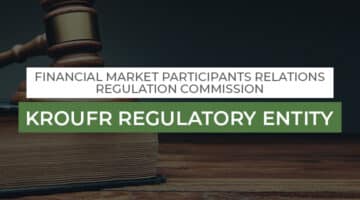
KROUFR Regulatory Entity
[top_three_brokers] The Financial Market Participants Relations Regulation Commission, KROUFR, is a non-profit regulatory organisation. Its…
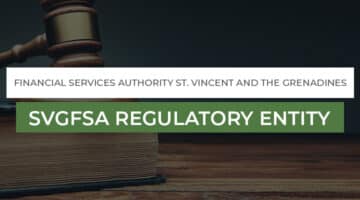
SVGFSA Regulatory Entity
[top_three_brokers] As of 2012, Financial Services Authority St. Vincent and the Grenadines operates under an…

MFSA Regulatory Entity
[top_three_brokers] Malta Financial Services Authority- MFSA is the main regulatory body of Malta. It was…
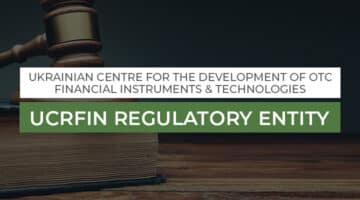
UCRFIN Regulatory Entity
[top_three_brokers] UCRFIN Regulatory Entity (Ukrainian centre for the development of OTC financial instruments and technologies)…

KNF Regulatory Entity
[top_three_brokers] In Poland, the Polish Financial Supervision Authority is in charge of the supervision of…
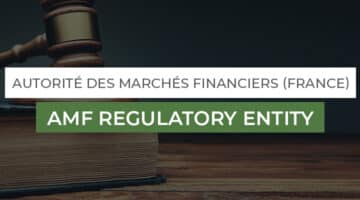
AMF Regulatory Entity
[top_three_brokers] AMF, the Autorite des Marches Financiers, also known as a financial market authority, is…

PRA Regulatory Entity
[top_three_brokers] PRA stands for Prudential Regulation Authority. It works as a regulatory and supervisory authority…
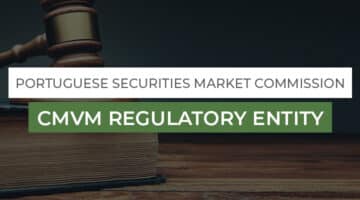
CMVM Regulatory Entity
[top_three_brokers] The CMVM is a forex broker company set up in Portugal that provides financial…

IIROC Regulatory Entity
[top_three_brokers] The Investment Industry Regulatory Organization of Canada (IIROC) is an independent self-regulatory organization within…


